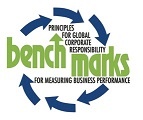Verified
Water problem in the coal city emalahleni
09:52 Oct 4 2016 Emalahleni, Nkangala, Mpumalanga, RSA
Description
By Brain Masuku, Thabo Elton, Rudolph Sambo, and Colleen JolobeWitbank (Emalahleni) is a small town in Mpumalanga and the big-
gest coal supplier in South Africa. This mineral helps the economy of
the country stay strong. But the people live with many health prob-
lems especially related to clean water.
We talked to the community about their problems and we found
a great number of angry and frustrated community members. They
are sick and tired of this unhealthy lifestyle forced on to them by
their municipality. We talked with staff from the local Hospital and
clinics but they would not respond to us. We talked with municipal
officials but they insist that there is no problem with the water. We
now have to think about how the community should come together
and take action.
What residents say
Simphiwe Khoza a resident of Emalahleni had this to say: “The mu-
nicipality is not concerned, not to say they don’t do their job but they
don’t put much effort. We have a huge dam, the Witbank dam where
they extract the water of Emalahleni. So I don’t understand how
come they fail to clean the water because they don’t spend much to
get the water”.
Many people from this settlement use bottled water for cooking
and drinking. Those who cannot afford bottled water suffer. “If you
leave tap water to settle in a container for 5 minutes just after pour-
ing it in a container, it forms this black layer at the bottom and when
I drink it, it gives me diarrhea and I also gain complexion,” said Mr.
Ngwato Tshehla.
Mr Mabena, a community member who lived in Witbank Ema-
lahleni for 15 years said that “the water has changed from what I
know, now it is worse. When I drink the water my stomach will start
running; when I think of taking a shower I have to think twice be-
cause after taking a shower my body will start feeling itchy. I am af-
fected by the water we receive from the tap.”
Tebogo Mpunyane, a resident, said “the water coming from our
taps is brownish in color and it smells bad, I don’t drink it because it
makes my stomach sour.”
Our own Observations
Ihawu Lemelo community based organisation (ILCBO) interviewed
ten community members from different locations who also com-
plained about the very same water. We then conducted research: we
took the tap water and compared it to the underground water and
there we managed to see the difference. The tap water smelt bad.
We spoke to nurses and doctors
After collecting this information, we went to the local clinic in Ext
10 Kwa-guqa to interview one of the nurses. We asked her if they
came across patients who suffer the consequences of the state of the
water and she said “Sorry I cannot give out information because by
the law I’m not allowed to give any information regarding my job and
the patients who I am treating”.
We met Doctor Mabuza at the Witbank Hospital who would not
speak to us and referred us to the CEO of the hospital, Mr. Albert,
who gave us only five minutes to explain what we were looking for.
We then stated that we were conducting a research about Emalahle-
ni water so we were looking for records of patients admitted to the
hospital due to related water issue. He responded “I am not disagree-
ing with you about what you are looking for but please write down
a formal letter and send it to my office then we will communicate it
with other officials on whether to give the information or not. We
cant just give the hospital information to strangers.” We then wrote
a letter and sent it but they never responded to it as yet many weeks
later.
We spoke to Municipal officials and visited Water
treatment plants
On the investigation done by the SAGRC activists on the 7th of
April 2015, the lady who is working at the sewer and wastewater
management said “I don’t drink tap water. I buy purified bottled wa-
ter because the one coming from the tap is full of manganese and
should I consume it, it will affect my unborn baby”.
Theo van Vuuren the municipality administrator was quoted in a
Witbank news article, “The current situation in Emalahleni in respect
of water quality is problematic. Since 2013 until recently we have
managed to improve the efficiency in water purification and could
guarantee the community top quality water flowing from the purifi-
cation works”. From our observation this is not true.
We spoke with officials form the Department of Water. They ex-
plained to us the water treatment cycle. They insist that they purify
the water before sending it to residents. We then went to the water
treatment plant to see for ourselves. What we saw made us believe
that raw sewage was being sent to the rivers without proper treat-
ment.
Our conclusion
We think our municipality is responsible for the poor quality of our
water. They are not operating the system properly. We need to come
together as a community and with assistance from water experts,
investigate the source of the poor water supply. We must push our
municipalities to comply with the laws of the country, which says ac-
cess to drinking water is a right. We must monitor the work done in
the water treatment plants and see that they are operating properly.
| Credibility: |  |
 |
0 |
Additional Reports
Air pollution is one of the main problem at the Mpumalanga province in the MNS informal settlement in Emalahleni
19:23 Sep 28, 2016
Emalahleni, Nkangala, Mpumalanga, RSA, 0 Kms


Leave a Comment